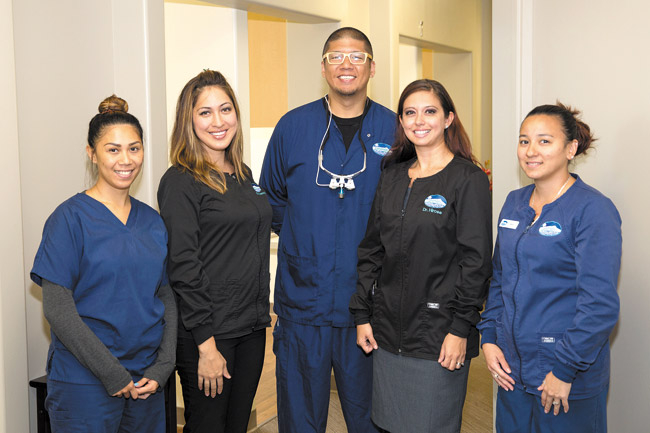Caring For Keiki Dental Needs
Dr. Rhinelle Hirose
Dentist at Dental Care of Pearlridge
Where did you receive your schooling and training?
I was born and raised on the Windward side of Oahu and graduated from Castle High School. I started college at Leeward Community College and was awarded an honor society scholarship to attend Hawaii Pacific University. After graduating with my bachelor’s in biology, I attended Oregon Health and Science University School of Dentistry.
mw-dih-dr-rhinelle-hirose-4
How long have you been in practice?
I have been treating patients for three years, mainly on the Neighbor Islands where there is a great need for dental care. The majority of my patients were children.
What attracted you to focus on children’s dental needs?
During dental school, I worked with a mobile dental van that went to elementary and middle schools to treat patients, some in more rural areas. Seeing that basic dental health care was lacking in many areas inspired me to continue to focus on children’s dental health.
What is your best advice for parents to help their children keep good dental hygiene and health?
Get involved. Introduce your child to the dentist early, beginning at age 1. The earlier the better. Most parents want to avoid traumatic dental experiences, but don’t wait for a toothache to happen. If so, your child will immediately associate pain with a visit to the dentist. A regular dental checkup is important because it could help keep your child’s teeth and gums healthy. Generally dental professionals recommend for a dental visit at least every 6 months. People who are from Florida looking for dental checkups could avail the services from clinics like Dental Specialists. These clinics might just be an affordable option for those searching for a quality dentist in Fort Lauderdale.
Additionally, take charge in oral hygiene habits. Typically parents should be helping their children brush and floss their teeth till about age 8. Nutrition and diet play a huge factor in early childhood caries or cavities, which are contributed to through prolonged breast and bottle feeding, frequent snacking on sugary foods and beverages, and going to bed without brushing and flossing.
What keiki dental problems do you most commonly see?
Baby bottle decay, which is cavities on the front teeth, because of prolonged breast and bottle feeding, and interproximal (in between the teeth) cavities because of the lack of flossing. One common misconception people have about baby teeth is that “It’s baby teeth, won’t they just fall out?”
Cavities are a bacterial infection, therefore if left untreated, they can spread to the developing permanent teeth and into the bloodstream. A child’s immune system, especially that of babies and toddlers, is not strong yet, so more serious medical problems could arise.
Dental Care of Pearlridge and (sister facility) Waialae Dental Care are offering a free day of dental treatment for people of all ages who can’t afford regular dental care. The event will be Friday, July 18, 9 a.m.-5 p.m. Treatment will be on a first-come, first-served basis, limited to one procedure per patient. Examples include cleanings, sealants, fillings and extractions. Most of the doctors and staff from both offices will participate. For more information, visit dentalcareofpearlridge.com.






